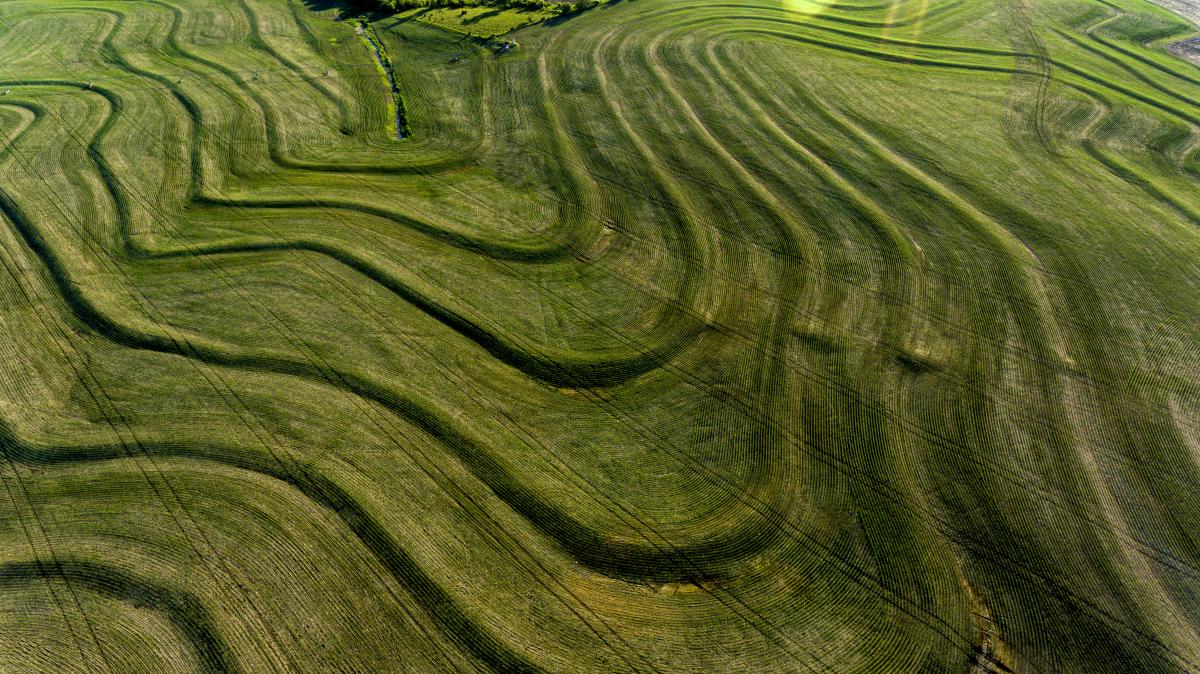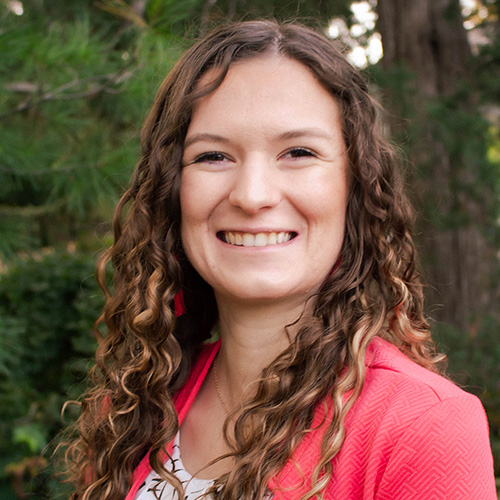
The Water and Integrated Cropping Systems (WICS) Hub
New Ways to Bring Water Research to Nebraskans
Water is a vital resource that is required by all forms of life. Plants, animals, and people need water to survive, so it is critical to preserve and conserve water from current stressors to guarantee future generations have quality water to use.
The Water and Integrated Cropping Systems (WICS) Hub was created as a springboard to integrate water experts across the university. Their mission: to more effectively share news and updates about water issues and concerns to the Nebraska public as well as scientific findings on water usage and preservation.
“One function of WICS is to serve as a platform for identifying, discussing, and solving problems related to water and cropping systems,” said Daren Redfearn, co-leader of the WICS Hub and professor in the Department of Agronomy and Horticulture at the university.
Crystal Powers, Nebraska Water Center research and Nebraska Extension communications specialist within the university is a primary organizer of the WICS Hub meetings.
“The goal of the WICS Hub is to facilitate communication between groups already conducting research and projects within the university and across the state,” Powers said. “WICS is more in the background – the grease on the skids – a place where interdisciplinary research teams can connect and ultimately mitigate water issues impacting the state.”
WICS is currently tackling critical biological stressors in Nebraska such as groundwater nitrates, climate change and extreme weather issues, soil care and conservation, cropping systems, and precision agriculture.
Communicating to the Public
Beyond being a connection point, the WICS Hub also plays a key role in communicating research findings about water to the public through Nebraska Extension.
“Nebraska Extension communicates water research across the state as quickly as possible,” Powers said. “Recently, collaborations within the WICS Hub between faculty and Nebraska Extension educators allowed us to get innovative research into the hands of farmers even faster – to really connect to the needs of the state.”
Specifically, Nebraska Extension hosts clinics, including the Crop Production Clinic, Soybean Management Field Days, and pesticide safety trainings.
These clinics provide producers with information about safe practices of chemical, water, land, and soil usage as well as proper farming and harvesting procedures. Ultimately, the clinics help to address the overuse and misuse of restricted chemicals, water, or amendments in the soil.
The On-Farm Research Network, Animal Manure Management Program, and the TAPS Program are also offered as hands-on opportunities for the public through Nebraska Extension programming – all that benefit from the WICS’ interdisciplinary approach.
Further, Nebraska Extension also serves as “boots-on-the-ground,” where they are able to relay local problems in smaller communities to others within the Hub, so research can be conducted, and solutions can be developed.
“Nebraska Extension educators are ingrained at the local or regional level, so they are aware of current issues in the state,” Redfearn said. “With similar situations scattered across the state, Extension educators bring issues to the others in Hub so we can develop programming that is more encompassing and broader-based.”
Bottom line: Faculty and Extension educators within the Hub utilize resources and knowledge to decipher and resolve water problems in Nebraska – particularly those impacted by typical Nebraska stressors.
In working towards solutions to the big problems, or biological stressors on water, WICS helps balance Nebraska’s agricultural economy and conserve vital resources for the future of Nebraska’s environment.
Future Developments
The WICS Hub officially launched in the fall of 2020 to help Nebraska Extension and university faculty to collaborate on water efforts and develops new initiatives every day.
More than 120 university and Nebraska Extension faculty are involved with the group. The Institute of Agriculture and Natural Resources (IANR) research, extension, and educational administration campuses and all UNL Research, Extension, and Education Centers are spread across Nebraska.
Current leaders of the WICS Hub include Ron Yoder, IANR senior associate vice chancellor; Chittaranjan Ray, Nebraska Water Center director; Daran Rudnick, associate professor in the Department of Biological Systems Engineering; and Daren Redfearn, professor in the Department of Agronomy and Horticulture.
For more information on the WICS Hub, contact Crystal Powers at cpowers2@unl.edu.
Key Takeaways:
- The Water and Integrated Cropping Systems (WICS) Hub was created to integrate water experts in an effort to more effectively share news and updates about water issues and concerns to the Nebraska public as well as scientific findings on water usage and preservation.
- The goal of the WICS Hub is to facilitate communication between groups conducting research and Extension projects within the university and across the state.
- WICS is currently tackling critical biological stressors in Nebraska such as groundwater nitrates, climate change and extreme weather issues, soil conservation, cropping systems, and precision agriculture.
- Beyond being a connection point, the WICS Hub also plays a key role in communicating research findings about water to the public through Nebraska Extension.
- For more information on the WICS Hub, contact Crystal Powers at cpowers2@unl.edu.
